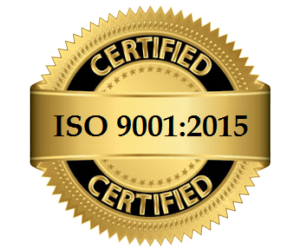Writing Effective Job Search Letters
There are three categories of job search letters:
- Cover letters
- Thank you letters
- Follow-up letters
No matter what kind of letter you are writing, it has to be well presented and very well written. It needs to be completely free of grammar and spelling errors. Proofread every piece of correspondence and have a trusty friend read your letters and offer comments and suggestions. In addition, make sure the name and address on the envelope is correct. Simple mistakes can lead to missed opportunities.
Cover Letters:
A cover letter is just as important as a résumé. It introduces you to the company and allows you to tailor your qualifications to the job opening. It is also meant to generate interest and get you an interview. To do this, it needs to be concise (we recommend you keep it to one page) and catchy. It should not be a synopsis of your job history, or a long-winded self-description using words like "assertive" or "highly motivated." Instead, demonstrate these qualities by describing your accomplishments. Here are the main components of a cover letter:
- Subject (Impact to gain airtime) this is your headline
- First sentence (The Why) what’s in it for you
- Followed by what’s in it for them. What are your highlights that are relevant to the job?
- Key achievements
- Career summary
- Career objectives
The final sentence should be a call to action. This should be a compelling statement motivating the interviewer to meet with you to discuss your suitability for the position further.
Thank You Letters:
Send a thank you letter after your first meeting with a business contact name. Thanking your potential employer expresses gratitude, appreciation, and interest in the position. A thank you letter should be sent within 24 hours of an in-person conversation.
For example: I enjoyed meeting with you to discuss the position of Design Engineer with LMOC Corporation. I appreciate your open and honest answers to my questions.
This position is exactly what I have been looking for, and I sincerely hope that I am the person you are looking for as well. I can be reached next week at (416) 333-3333. I look forward to talking to you further.
Yours truly, John Smith
Follow-up Letters:
After meeting with a colleague or business contact or after conversing at a job fair, send a follow-up letter. This is not just a "Thanks for your time." It is an opportunity for you to review the conversation and describe your qualifications. You should include similar information you might include in a cover letter. Listed below are some excellent points describing when and how to follow up.
Keep the following points in mind:
- Mail your letter within 48 hours of the meeting.
- Address your contact by name and title.
- Express appreciation for his/her time.
- Review the important points of your conversation (to show you were listening and remind the recruiter/interviewer of your conversation).
- Express enthusiasm for the project and/or company.
- Ask for the assignment or an interview if appropriate.
- Include a copy of your résumé.



